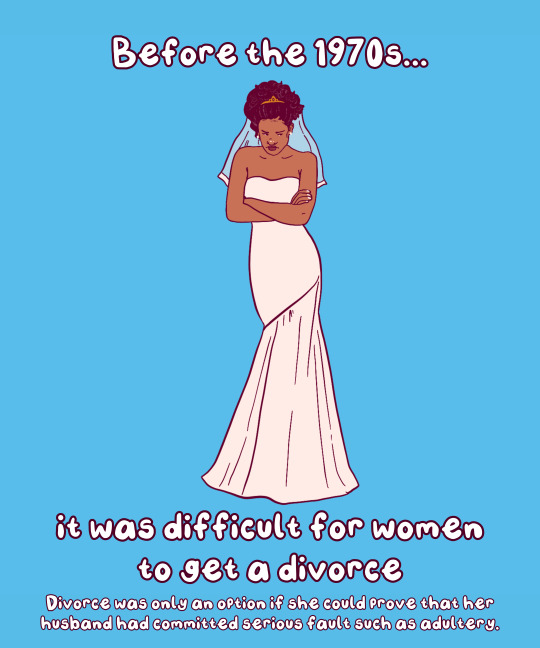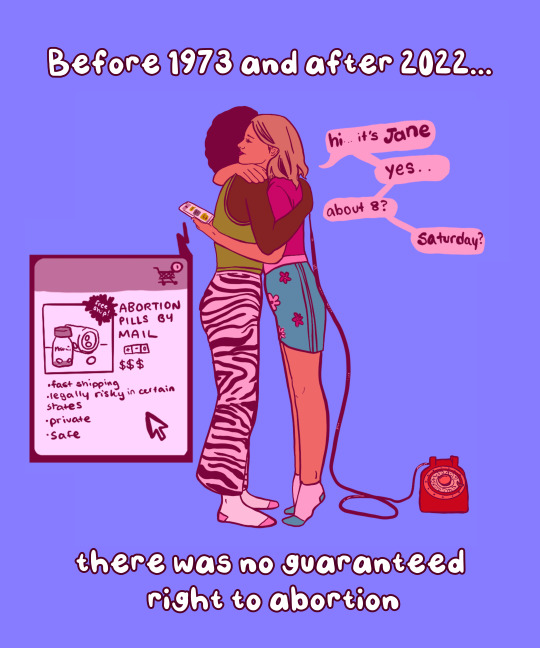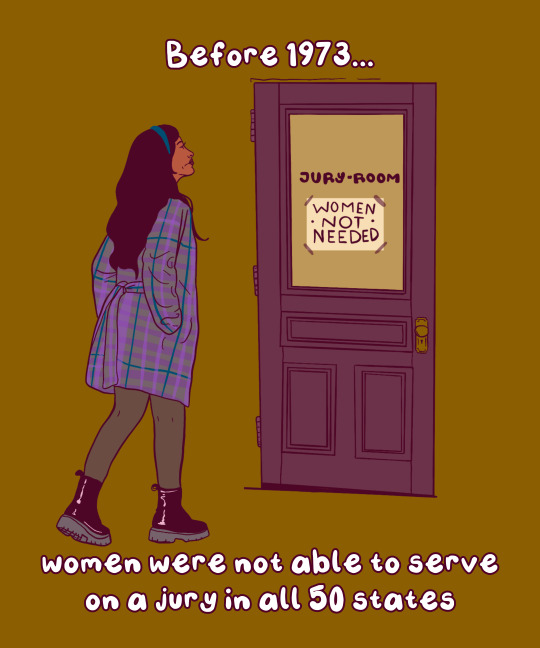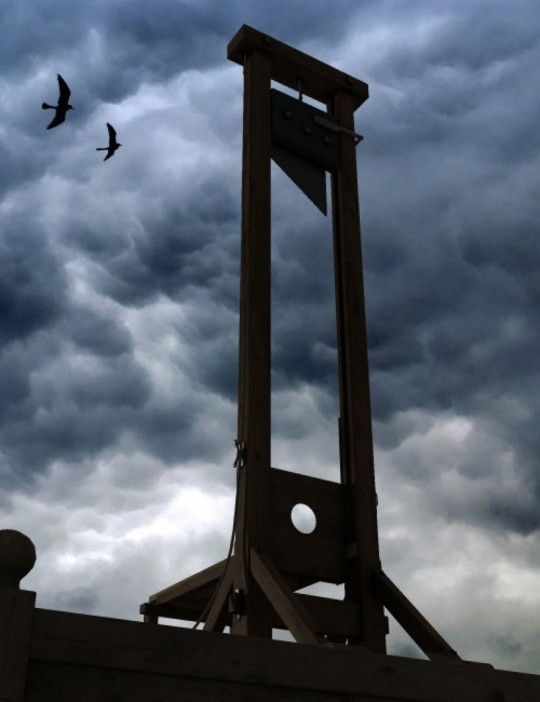#legislative duties
Explore tagged Tumblr posts
Text
Former Minister Alamgir Alam Seeks Permission to Attend Assembly Session
Lawyer Files Petition in PMLA Court for Alamgir Alam’s Participation in Assembly Former minister Alamgir Alam has sought permission to attend the assembly session scheduled for Monday. RANCHI – Former minister Alamgir Alam has requested the court’s permission to participate in the upcoming assembly session on Monday. His lawyer has filed a petition in the PMLA court, which is set for hearing on…
#Alamgir Alam#Assembly session#राज्य#court hearing#Enforcement Directorate#Hotwar Jail#Jharkhand Politics#judicial custody#legislative duties#PMLA Court#state#tender scam
0 notes
Text
another fun project I want to work on and put together, is just writing about queer historical figures, and historical figures that i actually suspect were gay, queer, etc. not just tudor era people but like...just queer people both confirmed, and speculated through history.
#like i truly believe mary i and stephen gardiner were gay#mary i was suffering from comphet#and a lot of it comes from the fact that she didn't marry for love she married to bring together a nation#she married because she believed that is what she had to do due to her religion#i'm not saying she didn't love philip#but i don't believe that if she wasn't a queen or whatever she would have married#most likely mary i would've been a nun#and i say that because of her piety#but like an abbess - a nun that had a lot of power and a nun that probably would've made some cultural impact regarding education#religion#etc.#like yes#nuns did do a lot of interesting things#some of their works are still preserved#lucrezia borgias daughter was also a nun#and went on to become either an author or composer#but i really do look at mary's relationship to philip#and a lot of it wasn't so much love but duty#she also married her cousin - whom was philip#and that was also something that was expected of her#but what other historical figures idk#i'd have to look#but i would do mary i and stephen first#oh and how can i forget gregory cromwell#that one will be fun#especially since it was thomas cromwell who historically introduced what we would now call anti-gay legislation into protestant england#also thomas winters - the son of thomas wolsey#that man was GAAAAAAYYYYYYYYY#but also#i need some confirmed gay ppl too
20 notes
·
View notes
Text
US Immigration and Customs Laws encompass a complex framework governing the movement of people and goods across the United States' borders. These laws are designed to regulate immigration, prevent illegal entry, ensure national security, and facilitate lawful trade and travel. They cover a wide range of topics, including visa requirements, border security measures, customs duties, import/export regulations, and enforcement mechanisms. Compliance with these laws is crucial for maintaining legal status, preventing unauthorized entry, and upholding the nation's safety and security. Various government agencies, such as the Department of Homeland Security, Customs and Border Protection, and Immigration and Customs Enforcement, oversee the enforcement and administration of these laws.
#US immigration laws#Customs regulations USA#Immigration policy United States#Border security regulations#Visa requirements America#Customs duties and tariffs#US immigration enforcement#Legal entry to the US#Immigration and customs compliance#Visa application process#US border control measures#Immigration legislation updates#Customs clearance procedures#Homeland security regulations#Immigration and customs agencies
2 notes
·
View notes
Text
I want to dive into all the Alan Wake 2 stuff, I want to see what my guy (and his new friends and foes) are up to and check out all the cool fanart and and and
but I haven't played the game yet and I kind of want to play it blind and unspoiled because theorising about stuff in Remedy games is just great fun, so I'm having to show SO MUCH self restraint about this, wah.
At least work is busy and distracting!
#'higher duties' is when you fill in for someone but also don't stop your normal job#because your normal job has a hard deadline that's set out in the legislation#so fffffff
2 notes
·
View notes
Text
Not with that attitude


94K notes
·
View notes
Text
Women's Not So Distant History
This #WomensHistoryMonth, let's not forget how many of our rights were only won in recent decades, and weren’t acquired by asking nicely and waiting. We need to fight for our rights. Here's are a few examples:

📍 Before 1974's Fair Credit Opportunity Act made it illegal for financial institutions to discriminate against applicants' gender, banks could refuse women a credit card. Women won the right to open a bank account in the 1960s, but many banks still refused without a husband’s signature. This allowed men to continue to have control over women’s bank accounts. Unmarried women were often refused service by financial institutions entirely.

📍 Before 1977, sexual harassment was not considered a legal offense. That changed when a woman brought her boss to court after she refused his sexual advances and was fired. The court stated that her termination violated the 1974 Civil Rights Act, which made employment discrimination illegal.⚖️

📍 In 1969, California became the first state to pass legislation to allow no-fault divorce. Before then, divorce could only be obtained if a woman could prove that her husband had committed serious faults such as adultery. 💍By 1977, nine states had adopted no-fault divorce laws, and by late 1983, every state had but two. The last, New York, adopted a law in 2010.

📍In 1967, Kathrine Switzer, entered the Boston Marathon under the name "K.V. Switzer." At the time, the Amateur Athletics Union didn't allow women. Once discovered, staff tried to remove Switzer from the race, but she finished. AAU did not formally accept women until fall 1971.

📍 In 1972, Lillian Garland, a receptionist at a California bank, went on unpaid leave to have a baby and when she returned, her position was filled. Her lawsuit led to 1978's Pregnancy Discrimination Act, which found that discriminating against pregnant people is unlawful

📍 It wasn’t until 2016 that gay marriage was legal in all 50 states. Previously, laws varied by state, and while many states allowed for civil unions for same-sex couples, it created a separate but equal standard. In 2008, California was the first state to achieve marriage equality, only to reverse that right following a ballot initiative later that year.

📍In 2018, Utah and Idaho were the last two states that lacked clear legislation protecting chest or breast feeding parents from obscenity laws. At the time, an Idaho congressman complained women would, "whip it out and do it anywhere,"

📍 In 1973, the Supreme Court affirmed the right to safe legal abortion in Roe v. Wade. At the time of the decision, nearly all states outlawed abortion with few exceptions. In 1965, illegal abortions made up one-sixth of all pregnancy- and childbirth-related deaths. Unfortunately after years of abortion restrictions and bans, the Supreme Court overturned Roe in 2022. Since then, 14 states have fully banned care, and another 7 severely restrict it – leaving most of the south and midwest without access.

📍 Before 1973, women were not able to serve on a jury in all 50 states. However, this varied by state: Utah was the first state to allow women to serve jury duty in 1898. Though, by 1927, only 19 states allowed women to serve jury duty. The Civil Rights Act of 1957 gave women the right to serve on federal juries, though it wasn't until 1973 that all 50 states passed similar legislation

📍 Before 1988, women were unable to get a business loan on their own. The Women's Business Ownership Act of 1988 allowed women to get loans without a male co-signer and removed other barriers to women in business. The number of women-owned businesses increased by 31 times in the last four decades.
Free download

📍 Before 1965, married women had no right to birth control. In Griswold v. Connecticut (1965), the Supreme Court ruled that banning the use of contraceptives violated the right to marital privacy.

📍 Before 1967, interracial couples didn’t have the right to marry. In Loving v. Virginia, the Supreme Court found that anti-miscegenation laws were unconstitutional. In 2000, Alabama was the last State to remove its anti-miscegenation laws from the books.

📍 Before 1972, unmarried women didn’t have the right to birth control. While married couples gained the right in 1967, it wasn’t until Eisenstadt v. Baird seven years later, that the Supreme Court affirmed the right to contraception for unmarried people.

📍 In 1974, the last “Ugly Laws” were repealed in Chicago. “Ugly Laws” allowed the police to arrest and jail people with visible disabilities for being seen in public. People charged with ugly laws were either charged a fine or held in jail. ‘Ugly Laws’ were a part of the late 19th century Victorian Era poor laws.

📍 In 1976, Hawaii was the last state to lift requirements that a woman take her husband’s last name. If a woman didn’t take her husband’s last name, employers could refuse to issue her payroll and she could be barred from voting.

📍 It wasn’t until 1993 that marital assault became a crime in all 50 states. Historically, intercourse within marriage was regarded as a “right” of spouses. Before 1974, in all fifty U.S. states, men had legal immunity for assaults their wives. Oklahoma and North Carolina were the last to change the law in 1993.

📍 In 1990, the Americans with Disability Act (ADA) – most comprehensive disability rights legislation in U.S. history – was passed. The ADA protected disabled people from employment discrimination. Previously, an employer could refuse to hire someone just because of their disability.

📍 Before 1993, women weren’t allowed to wear pants on the Senate floor. That changed when Sen. Moseley Braun (D-IL), & Sen. Barbara Mikulski (D-MD) wore trousers - shocking the male-dominated Senate. Their fashion statement ultimately led to the dress code being clarified to allow women to wear pants.

📍 Emergency contraception (Plan B) wasn't approved by the FDA until 1998. While many can get emergency contraception at their local drugstore, back then it required a prescription. In 2013, the FDA removed age limits & allowed retailers to stock it directly on the shelf (although many don’t).

📍 In Lawrence v. Texas (2003), the Supreme Court ruled that anti-cohabitation laws were unconstitutional. Sometimes referred to as the ‘'Living in Sin' statute, anti-cohabitation laws criminalize living with a partner if the couple is unmarried. Today, Mississippi still has laws on its books against cohabitation.
#art#feminism#women's history#women's history month#iwd2024#international women's day#herstory#educational#graphics#history#70s#80s#rights#women's rights#human rights
18K notes
·
View notes
Text
Texas Republican Congresswoman Kay Granger, aged 81, has been absent from her duties in Washington, D.C., for the past six months while residing in a nursing home costing $4,000 per month.
According to the Daily Mail, despite being the longest-serving Republican lawmaker, Granger has not voted or visited her Capitol Hill office since July. Her nearly 30-year legislative career was scheduled to end in January.
4K notes
·
View notes
Text
TRANSGENDER from wikipedia: TRANSGENDER was a fad from the early 2000s that doesnt even freacking exist any more thanks to the dutiful work of our Saviors and nobody will ever ever be born transgender again because we did it!!! we stomped it out!!!!! we passed all the right legislation and got rid of the MENACE👍mhm yay🫶 it will never ever happen againm💜mhmmmmm
531 notes
·
View notes
Text
Ok ok I have to work on my backlog of fics BUT

Thinking about usurper king Price on an uncontested conquest of an entire continent. No one knows how he does it, but one day a kingdom is standing independent - the next, its bearing his coat of arms.
(He’s got a team of his most trusted warriors. One goes in, gathers intel and allies and plans, takes down all the key players and opens the doors for Price’s army.)
He’s a good ruler in the sense that he is EFFECTIVE. Brutal and cruel, short tempered and occasionally unpredictable. But overall, he has solid infrastructure, flourishing economy, and trade deals for goods from other continents that are mostly trying to appease him. It’s incidental that most everyone fears him. Deeply. They have good reason for it.
Reader’s kingdom is on the far side of the continent, with two much larger and more robust countries between. They’ve just allied together, so there’s actually some hope that they’ll be able to stop Price’s conquest at the halfway point.
(He knows that, but it’s much easier to force convince cooperation with nowhere to run. Feeling protected breeds complacence, it’s really all too simple it’s like they WANT to be at his heel.)
He’s taking special care with this one, goes himself as a new hire to a paranoid king’s royal guard. The other king is foolish, prideful, nothing but nepotism in his court and corruption at every turn. Almost all of his advisors are happy to turncoat for coin or promises of station in the new regime, one by one.
(Key word: almost. There are only a few, he can count them on one hand, but they’re loyal not to the king. They’re loyal to his heir.)
For all of his many, many faults the current king cares deeply for you, his heir. Who price is assigned to guard with his false identity. Who becomes your shadow, not from duty (as you might assume) but obsessive fascination.
(You’re just so good. An idealist, an optimist, an altruist. All terrible, damning things for a leader to be. Poor thing, you’re not suited to ruling. You’ll tear up that soft heart on hard decisions and necessary sacrifices. You’ve overcorrected your father’s negligence by caring too much. Price is doing you a favor by taking over.)
For as sweet and benevolent as you are, you’re also whip smart and strong-willed. Have to be to get anything done in your father’s circus show of a court. Truly the only thing between the people and careless greed of the rich and powerful, but you wear that responsibility as well as any crown.
And you’ll put yourself between Price (your guard) and citizens that just want to shake your hand, or offer you sweets out of well-earned devotion. He loses track of how many times you scold him for the coldness he’s so well known for. Or how often you snip at him for voicing his opinions about your legislation (not that you ever tell him not to share them, he notices)
(He imagines that pouty face melting away beneath moans of pleasure. Your tiara slipping off while he bounces you on his cock. That smart mouth wrapped around his cock, or crying his name. You’re gorgeous and clever and so fucking contrary for all that you are infuriatingly kind - he takes pleasure in being the only one to provoke you so.)
and when the time comes, your father and all his useless advisors slain, blood on the same gold that bought their own slaughter, he has you brought before him.
There’s steel in your spine even with tears running down your face and you lift your chin when you tell him he’s no king. Not to you, no matter whose flag decorates the ramparts. That the only way you’ll kneel is by force and it would only prove he’s not fit for a throne.
You’re beautiful and heartbroken but defiant in a way that makes his blood run hot and he adores you. Adores you so much that he can’t bring himself to cut you down, as he has with all royal families he’s usurped. No, not when you have so much potential. When you are the only part of the old regime worth salvaging.
He doesn’t, however, feel the same for your younger sibling - who takes after you with all the attitude but none of the grace (or his favor).
A life for a life, he bargains. The former king’s son in exchange for you - belonging to him now, that is. He doesn’t need your loyalty, but your compliance is convenient to sway the people towards submitting without bloodshed. And isn’t that better? He could raze the fields and streets to cement his rule, but you love your country too much to sacrifice it for your own pride. Not when you can do something to convince him otherwise, even this.
Besides, anything worth having is earned, he knows - and your heart will be his greatest possession.
#cod#cod au#my writing#thoughts(tm)#reader fic#dark fic#john price#king John price#conqueror John price
296 notes
·
View notes
Text
Fantasy Guide to the Absolute Monarchy

As there are many breeds of government, there are equally as many species of monarchy. Today, we will be learning about the concept of absolute monarchy and how we can write them within our WIPs.
What is Absolute Monarchy?

Absolute monarchy is when the monarch controls the country, the government and the people alone. The monarch has all power, militarily and politically. Their word is law, they control everything. They have governments, they have advisors and councillors but at the end of the day, they are the last word on every matter.
Perks of Being a Despot an Absolute Monarch

It's really a no brainer. Ultimate power, ultimate control and importance. Who wouldn't want that? Nobody can tell you what to do. Nobody can stop you making decisions you feel are right. Nobody can prevent you from doing mad shit like:
Riding a horse across the Bay of Baiae
Building a vast palace on a swamp that almost bankrupts your realm and kills a shit load of people
Constantly invade France for the lols
Declare war on the sea
Rig the Olympics
The Downsides of Absolute Monarchy

Most people would but absolute monarchy comes at a price. If you're the most powerful person in the kingdom, and every choice and decision is yours, then every mistake, every bad decision, every single thing is your fault. The crops failed? Your agricultural legislation. Your people are starving? You're starving them. No accommodation? That's a nice palace you got there, shame if somebody were burn you inside that fucking palace, huh? The thing about absolute power is that it corrupts and unchecked, anybody can become a monster. And of course, people don't generally like monsters.
When Absolute Monarchy Goes Wrong

When you are alone on top, all the hatred and ire is fixed on you. And people don't generally like the idea of one person deciding their fate, especially when they are forced into silence. The French Revolution, the Russian Revolution, the English Civil War all at the heart were conflicts of an Absolute Monarchy vs those under it. With the growth of different political parties and idealogies, the modern era has seen the abolishing of absolute monarchies. Monarchies had to adapt or die out and today, there are only a handful left. An absolute monarch ought to never forget that while they have all the power, that could be the key to their unravelling. The Tsars of Russia found this out the hardwayAn absolute monarch who pays attention to the climate around them and knows when to quit, is one that may be able to survive.
The Right Person vs The Wrong Person


There's no logical reason to leave the fate of millions in the hands of one person, that is even more dangerous when that person is a buffoon. If one is going to do this foolish thing, the person who takes that responsibility and duty will have to be decesive, pragmatic, strong, able to think on their feet, organised, passionate. They must be able to make the right choice, no matter the consequences. They must have the fortitude to lead their country to stability during all troubles. Anything else, could lead them and the country to disaster. Yes, it's an impossible undertaking but some have managed it well enough to be called successful.
#Fantasy Guide to absolute monarchy#Absolute Monarchy#writing#writeblr#writing resources#writing reference#writer#writer's problems#fantasy guide#writers on tumblr#Writing guide#Writing royalty#royalty#Monarchy#Fantasy Guide to Royalty#Writing reference writing resources#Writing resources writing reference
401 notes
·
View notes
Text
Dandelion News - April 1-7
Like these weekly compilations? Tip me at $kaybarr1735 or check out my Dandelion Doodles! Last month’s Doodles are free to the public, so go take a look :D
1. Galapagos tortoises at Philadelphia Zoo become first-time parents at nearly 100

“Mommy, the female tortoise, is considered one of the most genetically valuable Galapagos tortoises in the Association of Zoos and Aquariums’ species survival plan. [… T]he zoo said it is “overjoyed” at the arrivals of the four hatchlings, a first in its more than 150-year history.”
2. Massachusetts home-electrification pilot could offer a national model

“In total, the program is providing free or heavily subsidized solar panels and heat pumps to 55 participating households, 12 of which also received batteries at no cost. […] It’s a strategy that program planners hope can help address the disproportionate energy burden felt by lower-income residents of the region[….]”
3. National Park Rangers rebel against queer erasure on Trans Day of Visibility

“[… A] group of over 1,000 off-duty, fired, and retired National Park Service employees launched Rangers Uncensored, an online archive that restores and amplifies LGBTQ+ stories quietly scrubbed from government websites since President Donald Trump’s second inauguration.”
4. World's largest wildlife crossing reaches critical milestone

“Over the next few days they'll be adding 6,000 cubic yards of specially manufactured soil to cover the crossing, a mix of sand, silt and clay inoculated with a bit of compost and hyperlocal mycorrhizal fungi, carefully designed and tested to mimic the biological makeup of native soils around the site.“
5. Bipartisan bill to boost green building materials glides through House

“[B]ipartisan legislation the House of Representatives passed in a 350-73 vote last week would give the Department of Energy a clear mandate to develop a full program to research, develop, and deploy clean versions of the building materials.”
6. Tribal Wildlife Grants Funding Announced
“Tribal Wildlife Grants are intended to help Tribes develop programs for the conservation of habitat and species of traditional or cultural importance[….] Typically funded projects include: conservation planning, fish and wildlife management and research, habitat mapping and restoration, inventory and monitoring, and habitat preservation. […] A total of $6.1 million is available for this round of funding[….]”
7. Germany adds another one million PV arrays to take solar total to 104 gigawatts

“Following a rapid rise in household solar panel installations, Germany’s total number of PV arrays has passed the five million “milestone[.…]” Solar systems already cover almost 15 percent of Germany’s electricity demand, BSW-Solar said. […] The total capacity of all PV systems installed in Germany surpassed 100 GW at the start of the year.”
8. Stronger together: Bilby conservation efforts enhanced by Indigenous knowledge

“Ms. Geyle said the results showed combining [conventional science and traditional tracking methods] more accurately estimated bilby abundance than using either technique individually[….] "[… ensuring] that Indigenous people remain central to decision-making about their lands and species that inhabit them," Ms. Geyle said.”
9. Lennar will build 1,500new Colorado homes with geothermal heat pumps

“The homebuilder is partnering with Dandelion Energy to install the tech, which is efficient but expensive — unless it’s built into new homes from the start. […] And by eliminating the need for new gas pipelines and reducing the peak electricity demands on the power grid, subdivisions built on this model could save a bundle on utilities as well[….]”
10. New strategy launched to protect Tanzanian biodiversity hotspot

“Conservationists have launched a 20-year-long project to protect what is arguably Tanzania’s most biologically rich landscape: the Udzungwa Mountains. The strategy places notable emphasis on communities living here, with more than half of its budget allocated to social and economic projects and managing human-wildlife conflict.”
March 22-28 news here | (all credit for images and written material can be found at the source linked; I don’t claim credit for anything but curating.)
#hopepunk#good news#nature#philadelphia#zoo#galapagos#tortoise#solar panels#clean energy#national park service#lgbt+#lgbt#lgbtq#park ranger#wildlife#us politics#ecology#green infrastructure#indigenous#habitat restoration#germany#solar energy#solar power#australia#geothermal#heat pump#energy efficiency#biodiversity#tanzania#animals
267 notes
·
View notes
Text
Another 'wonderful news' from Russia for your consideration! This week, the BRICS forum on traditional values took place in Moscow. And it was fucking insane.
In short, the opening meeting was BRICS countries representatives verbally jerking off on how well they oppress or plan to oppress their people especially women. The only person who bothered to contradict this narrative was Egyptian female writer Doha Mustafa Assy.
I will translate some quotes from the russian article. https://www.kommersant.ru/doc/7311174
Russia: "At some point the roles for women have begun to change towards independence and self-sufficiency. We, of course, love and respect our women very much, but we want them to pay more attention to their families, men and children. We do not want them to strive for business, politics, economics, power, or culture. <...> The main traditional value is the preservation of natural purpose, where a woman continues the family line and a man inspires her to give birth to children."
Pakistan: "Any traditional religion upholds and promotes social values and traditions. No father would want to harm his family. No mother would want to break up or disintegrate her family. This <rejection of family values> is deliberately imposed on us and promoted by some power circles”
Ethiopia: "In our country it is traditionally women who do the cooking, teaching children and other family duties. So the man's role is not as big as the woman's, and this tradition gives the man the freedom to behave like a child." (?????)
Uganda: [This country experience is “extremely important to the discussion of legislative protection of religious values,” emphasized russian politician Dmitry Kuznetsov, referring to the fact that in Uganda same-sex relations are prohibited, and in some cases violators face life imprisonment or even the death penalty.] “We did this to make sure that the country would be preserved. I would encourage countries to behave in such a way that the culture that exists in each country is not imposed on others.” btw Brazil and South Africa representatives didn't say a word here even though their countries legalized same-sex mafrriage years ago.
Brazil: "Marriage in no longer a goal for our citizens and the country has the highest divorce rate in history. Meanwhile, children are most often left with their mothers, with fathers unwilling to take part in their upbringing. As a result, many Brazilian boys are growing up without a father figure and 9% of male inmates in prisons don't even know their father's name. Shifting the balance in favor of women leads to the fact that the position of feminism is growing, and the number of people who identify as LGBT people is growing.” At the end of his speech, he marveled, “This is my first time in Russia, and I didn't know you guys were so conservative. I'm so happy, it's so impressive!” He also admitted that “the people of Brazil know nothing about Russia,” and Dmitry Kuznetsov promised: “We will come to you and tell you all about our saving conservatism.”
Egypt: As I mentioned in the beginning the only person who actively argued against this trend was Doha Mustafa Assy. She said: "We on the contrary has a struggle against patriarchy. Tradition and religion are not on women's side, they help men. A lot of women in Egypt ask for divorce only because they feel like slaves at home. He (the husband) has the right not to let her leave the house according to tradition. BRICS is India, it's China, it's Russia, it's Egypt. We are very different. And maybe what you are trying to do in Russia has already became a problem for us”.
To be honest I don't know what will come out of this forum. Maybe it's just empty posturing, maybe BRICS countries just sent people who had free time on their hand here as a formality. But I despair reading these quotes; twenty years ago we sent a singing duet posing as lesbians to Eurovision; ten years ago I was watching lesbian drama Blue Is the Warmest Colour in a full theater. Soviet Union gave women some attempt in an equal rights in fucking 1917 and we were the first country to send a woman in space. What happened? How has it turned this way? We are now friends with some of the most patriarchal countries in the world and with fucking North Korea. They are planning to remove the Taliban's terrorist status.
What the hell.
266 notes
·
View notes
Text
US Constitution: Second Amendment
A well regulated Militia, being necessary to the security of a free State, the right of the people to keep and bear Arms, shall not be infringed. — U.S. Constitution Second Amendment
----------------------------------------------
10 U.S. Code § 246: The militia of the United States consists of all able-bodied males at least 17 years of age...
----------------------------------------------
Ex parte Milligan, 71 U.S. 2 (1866) which yet stands to this day: "The Constitution of the United States is a law for rulers and people, equally in war and in peace, and covers with the shield of its protection all classes of men, at all times, and under all circumstances. No doctrine, involving more pernicious consequences, was ever invented by the wit of man than that any of its provisions can be suspended during any of the great exigencies of government. Such a doctrine leads directly to anarchy or despotism..."
----------------------------------------------
Volume 16, American Jurisprudence 2d, § 52: “It is sometimes argued that the existence of an emergency allows the existence and operation of powers, national or state, which violate the inhibitions of the Federal Constitution. The rule is quite otherwise.
No emergency justifies the violation of any of the provisions of the United States Constitution. An emergency, however, while it cannot create power, increase granted power, or remove or diminish the restrictions imposed upon power granted or reserved, may furnish the occasion for the exercise of power already in existence, but not exercised except during an emergency... The Constitution of the United States is the law for rulers and people, equally in war and in peace, and covers with the shield of its protection all classes of men, at all times, and under all circumstances”
----------------------------------------------
Volume 16, American Jurisprudence 2d, § 177: "The general misconception is that any statute passed by legislators bearing the appearance of law constitutes the law of the land. The U.S. Constitution is the supreme law of the land, and any statue, to be valid, must be in agreement.
It is impossible for both the Constitution and a law violating it to be valid; one must prevail. This is succinctly stated as follows: The general rule is that an unconstitutional statute, though having the form and name of law, is in reality no law, but is wholly void, and ineffective for any purpose; since unconstitutionality dates from the time of its enactment, and not merely from the date of the decision so branding it.
An unconstitutional law, in legal contemplation, is as inoperative as if it had never been passed. Such a statute leaves the question that it purports to seNle just as it would be had the statute not been enacted.
Since an unconstitutional law is void, the general principals follow that it imposes no duties, confers no rights, creates no ojce, bestows no power or authority on anyone, affords no protection, and justifies no acts performed under it... A void act cannot be legally consistent with a valid one. An unconstitutional law cannot operate to supersede any existing valid law. Indeed, insofar as a statute runs counter to the fundamental law of the land, it superseded thereby. No one is bound to obey an unconstitutional law and no courts are bound to enforce it."
----------------------------------------------
“All laws, rules and practices which are repugnant to the Constitution are null and void ...if any statement within any law which is passed is unconstitutional, the whole law is unconstitutional.” Marbury v. Madison, 5th U.S. 2 Cranch 137, 180.
----------------------------------------------
"Even a state of war and the declaration of secession by the people cannot suspend the Constitution or remove its protection." Houston County v Martin, 232 Ala 511, 169 So. 13.
----------------------------------------------
Patrick Henry
* “Guard with jealous attention the public liberty. Suspect everyone who approaches that jewel. Unfortunately, nothing will preserve it but downright force. Whenever you give up that force, you are inevitably ruined.”
George Mason
* “To disarm the people...[i]s the most effectual way to enslave them.”
James Madison
* “The right of the people to keep and bear arms shall not be infringed. A well regulated militia, composed of the body of the people, trained to arms, is the best and most natural defense of a free country.”
* “The ultimate authority, wherever the derivative may be found, resides in the people alone.”
Noah Webster
* “Before a standing army can rule, the people must be disarmed; as they are in almost every kingdom of Europe. The supreme power in America cannot enforce unjust laws by the sword; because the whole body of the people are armed, and constitute a force superior to any bands of regular troops that can be, on any pretense, raised in the United States.”
Samuel Adams
* “The Constitution shall never be construed to prevent the people of the United States who are peaceable citizens from keeping their own arms.”
Richard Henry Lee
* “A militia when properly formed are in fact the people themselves...and include, according to the past and general usuage of the states, all men capable of bearing arms... “To preserve liberty, it is essential that the whole body of the people always possess arms, and be taught alike, especially when young, how to use them.”
Thomas Jefferson
* “I prefer dangerous freedom over peaceful slavery.”
* “What country can preserve its liberties if their rulers are not warned from time to time that their people preserve the spirit of resistance. Let them take arms.”
* “The laws that forbid the carrying of arms are laws of such a nature. They disarm only those who are neither inclined nor determined to commit crimes.... Such laws make things worse for the assaulted and better for the assailants; they serve rather to encourage than to prevent homicides, for an unarmed man may be attacked with greater confidence than an armed man.”
* “The Constitution of most of our states (and of the United States) assert that all power is inherent in the people; that they may exercise it by themselves; that it is their right and duty to be at all times armed.”
164 notes
·
View notes
Text
Some Law-Related Vocabulary
for your poem/story (pt. 1/4)
Acquiescence - acceptance, compliance, or submitting tacitly or passively
Act of God - an extraordinary natural event (as a flood or earthquake) that cannot be reasonably foreseen or prevented
Amicus curiae - friend of the court
Bad faith - intentional deception, dishonesty, or failure to meet an obligation or duty
Bill of pains and penalties - a legislative act formerly permitted that imposed a punishment less severe than death without benefit of a judicial trial
Blackacre - a fictitious piece of real property
Causa mortis - made or done in contemplation of one's impending death
Cool state of blood - an emotional condition in which a person's anger or passion is not great enough to overcome his or her faculties or ability to reason—often used in statutory definitions of murder
Depraved-heart murder - a murder that is the result of an act which is dangerous to others and shows that the perpetrator has a depraved mind and no regard for human life
Dereliction - an intentional abandonment
Executrix - a woman who is an executor
Expunge - to cancel out or destroy completely
Extraordinary remedy - a procedure for obtaining judicial relief allowed when no other method is available, appropriate, or useful
Ferae naturae - wild by nature; not usually tamed
Fighting words - words which by their very utterance are likely to inflict harm on or provoke a breach of the peace by the average person to whom they are directed
Fifth degree - the grade sometimes given to the least serious form of a crime
Fruit of the poisonous tree - evidence that is inadmissible under an evidentiary exclusionary rule because it was derived from or gathered during an illegal action
Gift causa mortis - a gift of especially personal property made in contemplation of impending death that is delivered with the intent that the gift take effect only in the event of the donor's death and that it be revoked in the event of survival
Hot blood - heat of passion; an agitated state of mind (as anger or terror) prompted by provocation sufficient to overcome the ability of a reasonable person to reflect on and control his or her actions
Inveigle - to lure by false representations or other deceit
Lucri causa - intent to obtain a gain
Mystic will - in the civil law of Louisiana; a will signed, sealed, witnessed, and notarized according to statutory procedure; called also mystic testament, secret testament
Naked promise - gratuitous promise
Obligor - one who is bound by an obligation to another
Penumbra - an area within which distinction or resolution is difficult or uncertain
Quaere - question—usually used to introduce a question
Recusant - refusing to submit to authority
Solatium - compensation for grief or wounded feelings (as from the wrongful death of a relative)
Third degree - the grade given to the third most serious forms of crimes
Uberrimae fidei - of the utmost or perfect good faith
Vitiate - to make ineffective
Word of art - a word having a particular meaning in a field; also called "term of art"
X - a mark used in place of a signature when the maker is incapable of signing his or her name (as because of illiteracy or a physical ailment)
Year-and-a-day rule - a common-law rule that relieves a defendant of responsibility for homicide if the victim lives for more than one year and one day after being injured (Note: This rule dates from at least 1278, and is frequently criticized as anachronistic since modern medicine makes pinpointing cause of death easier than it was formerly. However, the rule still exists or is reflected in the law of some jurisdictions.)
Zone of danger - the area within which one is in actual physical peril from the negligent conduct of another person
If any of these words make their way into your next poem/story, please tag me, or leave a link in the replies. I would love to read them!
More: Law-Related Words ⚜ Word Lists
#word list#law#terminology#writeblr#langblr#linguistics#writers on tumblr#poets on tumblr#writing prompt#spilled ink#dark academia#light academia#studyblr#writing reference#literature#poetry#writing inspiration#writing ideas#writing inspo#creative writing#fiction#writing resources
323 notes
·
View notes
Text

no NO bc SHHHH SHHHH. Rewatching the movie again knowing the context of nimona's backstory just HIT In such a fresh way. SHHHH NO bc. shes been living like this for a THOUSAND years. She is an immortal being and she has seen this kingdom be built from the ground up for the entirety of its one thousand years. And the only reason it exists at all, the iron fist of the institute and the knight's duty to protect inhbaitants inside the wall against monsters outside of it... is because of her. Gloreth's will to create a league of knights only exists because of NIMONA. And a thousand years she stands surrounded by all this as it grows bigger and bigger. An entire kingdom built just so it can protect a threat that doesnt exist outside of HER. In a world where entire legislations and bills are made to target a small minority, where groups of adults agree to push a rule just so that the ONLY transgender kid in a small town cant play the sport they want - I cannot see how it isn't similar at all. This shot hurts me so much because it is us settling into the realization that the world has expanded so far beyond nimona all because it will never want her. A thousand years of this.... why shouldn't she finally give in?
2K notes
·
View notes
Text
From a country where voting is not a choice, but a duty, it's interesting seeing American discourse every four years on whether or not voting matters. This year there's an added layer, because Joe Biden has been supporting Israel's genocide against Palestine. Now there's a pervading sentiment - both in and out of the US - that voting for Joe Biden supports Palestinian genocide, and it's an American's moral duty to withhold their vote in support of Palestine.
I guess the question I ask is: how is withholding your vote effective activism?
If you don't vote, and Trump wins, he says he will deport pro-Palestine demonstrators. He says he supports Israel's right to defend itself. If you vote independent, and Trump wins the same thing happens.
If Biden wins, he will continue his support of Israel.
So: Is voting really the battleground for the Palestinian genocide, when either outcome leads down the same road?
And what other battles are being fought in this presidential race?
Gun laws - Biden passed "the most significant gun safety legislation in more than two decades", the Bipartisan Safer Communities Act. It includes enhanced background checks for gun purchasers, and prohibits individuals convicted of domestic violence towards a romantic partner from purchasing a gun (wherein the past a 'boyfriend loophole' had existed, wherein the law only applied if an individual was convicted of domestic violence against a spouse or cohabitant). Trump has promised to overturn Biden's new laws.
Healthcare - Uninsured Americans are at an all-time low under Biden's administration, with only 7.6% of Americans being uninsured in the second quarter of 2023. The number of people who signed up to Obamacare in 2024 is at 21.3 million - and Trump plans to repeal it.
Climate change - Biden's Inflation Reduction Act invests 300 billion dollars towards clean energy. Electricity generation from renewable energy sources — including wind, solar and hydropower — surpassed coal-fired generation in the electric power sector for the first time in 2022, making it the second-biggest source behind natural gas generation. At a recent dinner with oil executives and lobbyists, the Republican promised to eliminate Mr Biden's new climate rules and environmental regulations if they donated $1bn to his campaign.
Much has been said about Trump's second term beyond the above three points. @batboyblog posted a very clear and concise graphic on Trump's plans for his second term.
The BBC has also posted about Trump's plans for his second term, which I'll screenshot:

Trump is now a felon, but I was really shocked to learn about how little impact this has on his ability to run as president. His supporters are likely to stay by his side, because they believe in these policies.
Biden does not have the same luxury. I don't think he should have the same luxury. Still, I feel like it's important to point out that Trump and Biden's opinions on Israel and Palestine align, but there are a plethora of other issues they do not align on. As a voter, as an activist, when given two political parties, why would you choose based on the similarities as opposed to the differences?
Ways to help Gaza.
Vetted gofundmes.
Other links to help Palestine.
#uspol#politics#donald trump#joe biden#i wish americans had a preferential system#that meant an independent vote isnt the equivalent of throwing your hands in the air and giving up
439 notes
·
View notes